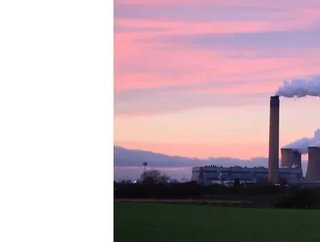Drax Power Station dropped as gas economics 'fail to add up'

Drax' decision to drop its 3.6GW CCGT complex shows power companies are waking up to the reality of the unfavourable economics of new gas plants, according to Catharina Hillenbrand, Carbon Tracker's Head of Power & Utilities.
By 2030, CCGT gas power at £67MWh will be 63% more expensive than a new Clean Energy Portfolio (CEP) on a Levelised Cost of Energy (LCOE) basis, according to Carbon Tracker.
In its 2020 annual report, submitted to the London Stock Exchange, Drax said it will not develop new gas fired power, building on its decision to end commercial coal generation and recent sale of existing gas power stations.
Will Gardiner, CEO of Drax Group said its focus is on renewable power and it aims to be carbon negative by 2030, after unveiling a total loss after tax of £158 million and net debt of £776 million.
"The proposed acquisition of Pinnacle Renewable Energy will position Drax as the world's leading sustainable biomass generation and supply business, paving the way for us to develop bioenergy with carbon capture and storage (BECCS) - taking us even further in our decarbonisation," he said.
Drax' results and renewables pivot coincided with a Carbon Tracker report warning new generation gas power plants in the UK could derail the country’s climate targets, push up household bills and waste up to £9 billion of investment.
If all the 14GW of planned power plants went ahead – including the 3.6GW planned by Drax – developers could be left with £9 billion of stranded assets, it reports.
Hilenbrand said by ignoring a least-cost clean energy solution, the UK risks veering off a net zero pathway and penalising consumers "as they will be the ones to bear the higher electricity prices".
Its recommendations for investors and policymakers are:
- Embrace coal-to-clean instead of coal-to-gas: new investments in gas capacity to partially fill any capacity gap left by the coal and nuclear phase outs will unlikely be a least-cost solution over the investment payback period. Importantly, our analysis highlights that a CEP is not only cheaper than new CCGTs but also offers equivalent grid services;
- Reform the capacity market to ensure that gas is not disproportionately rewarded at the expense of other resources: this will ensure the grid does not overlook the least-cost option for the services required.
- In the UK the optimum mix of technologies in a CEP would see the contribution of each resource divided as follows:







